#oakland museum of california
Explore tagged Tumblr posts
Text

Grace Hudson (1865-1937) "To-Tole (The Star)" (1894) Oil on canvas Located in the Oakland Museum of California, Oakland, California, United States
#paintings#art#artwork#genre painting#female portrait#grace hudson#oil on canvas#fine art#oakland museum of california#museum#art gallery#american artist#woman artist#women artists#female artists#portrait of a woman#native american#pomo#indigenous#clothing#clothes#headdress#pretty#1890s#late 1800s#late 19th century
313 notes
·
View notes
Text

June Jordan, (Berkeley, CA, 11:04 p.m., September 25, 2001), Do You Do Well to Be Angry?, «The Progressive» Magazine, November 1, 2001
(image: June Jordan: Poetry for the People, U.C. Berkeley, 1992. Artwork by Hal BrightCloud. Poem: On a New Year's Eve, from Things That I Do In The Dark (1981). Poetry for the People program records, 1991-2010, CES ARC 2018/1, Ethnic Studies Library, University of California, Berkeley, CA. Oakland Museum of California, Oakland, CA)
#graphic design#art#poetry#drawing#illustration#handwriting#calligraphy#poster#broadside#magazine#june jordan#hal brightcloud#the progressive#ethnic studies library#oakland museum of california#1980s#1990s#2000s
14 notes
·
View notes
Text
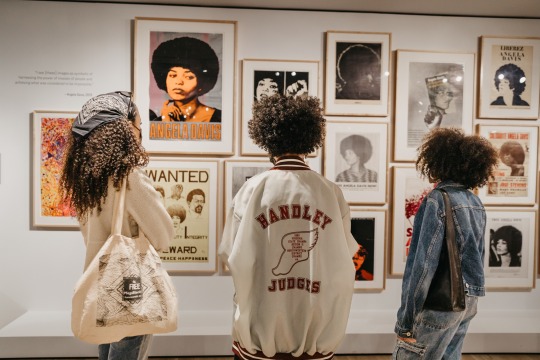
Angela Davis - Seize The Time (2023) Oakland Museum of California
#oakland museum of california#@museumca#SeizeTheTime#AngelaDavis#exhibit displays#art#blackisbeautiful#blacktivism#black history#the black narrative#activism#american black radical resistance#resistance#protest#icon#feminism#blackisbeyondbeautiful#blackissodamnedbeautiful#belovedcommunity#blackpeople#rootingforeverybodyblack#allblackeverything#problack#afrocentric#blackpeopleinamerica#blackactivism#civilrights#blacklivesmatter#blackpride#black tumblr
111 notes
·
View notes
Video
Aristotle's Cage by Thomas Hawk
#America#Aristotle's Cage#Bay Area#California#East Bay#Michael McMillen#Northern California#OMCA#Oakland#Oakland Museum#Oakland Museum of California#SF Bay Area#USA#United States#United States of America#West Coast#bw#museum#norcal#skeleton#flickr
3 notes
·
View notes
Text






up close @ OMCA • 09.26.2023
1 note
·
View note
Text


ONE OF THE MOST ON POINT INDICTMENTS OF AMERICAN "DEMOCRACY" IN DESIGN HISTORY.
PIC(S) INFO: Spotlight on the now oft-quoted "Democracy, We Deliver" anti-war poster, on offset lithograph paper, artwork by John Yates for Stealworks, c. 1993.
PIC #2: Identical graphic with different typography, later used as artwork for the CD liner notes to "Point Blank," the 1994 debut studio album by industrial thrash metal band NAILBOMB.
Sources: https://collections.museumca.org/?q=collection-item/2010543734 & Flickr.
#Lithograph#Oakland Museum of California#OMCA#Anti-war#Democracy We Deliver#OMCA Collections#John Yates Artist#1993#Democracy#American Style#Dark humor#John Yates#John Yates Art#1990s#Humor#American Military#U.S. Military#NAILBOMB#NAILBOMB Point Blank#U.S. government#Poster Design#Poster Art#USA#Typography#Graphic Art#Graphic Design#U.S. Air Force#Death from Above#War Crimes#Bombings
1 note
·
View note
Text

Elsewhere at the OMCA
1 note
·
View note
Text
Meetup

Sign up to join Choice of Games co-founder Dan Fabulich for an Interactive Fiction meetup online or in person in Oakland, California at The Museum of Art and Digital Entertainment. Play new games and meet fellow nerds.
https://www.meetup.com/sf-bay-area-interactive-fiction/
This month, we'll play the games newly available as part of the Spring Thing! https://www.springthing.net/2025/
And, uh, wow, we've been having this meetup for 15 years!! I'd really love for this to be a big event in person. I'll meet y'all next door at Swann's Market at noon for lunch, and then we'll convene at the MADE next door at 1pm.
Even if you can't make it in person, we'll still host a Zoom as always, so you're always welcome to pop in there, too.
#choiceofgames#choice of games#interactive fiction#booknerdlife#interactivefiction#meet up#museum of modern art and digital enterainment#oakland california
9 notes
·
View notes
Text
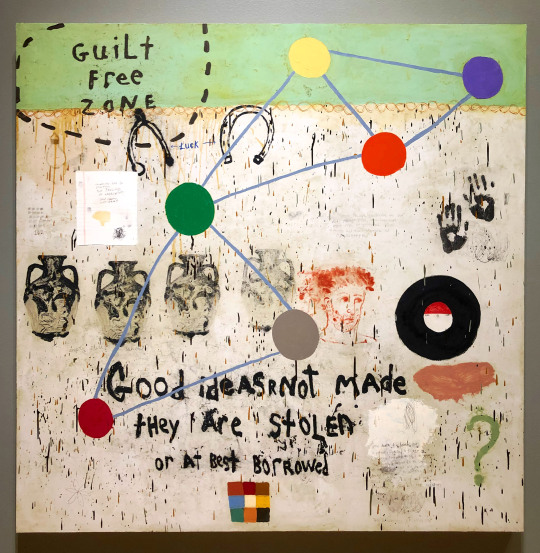
The image above is of Squeak Carnwath’s painting, Best Borrowed, 2005, Oil and alkyd on canvas, taken at Palm Springs Art Museum in 2018.
A solo exhibition of her work is currently at Pt.2 Gallery in Oakland, California, on view until 2/16/24.
#Squeak Carnwath#Painting#Pt. 2 Gallery#Art#Art Shows#California Art Shows#Oakland Art Shows#Palm Springs Art Museum#TBT
0 notes
Text

Laurence Cuneo
Portrait of Ruth Asawa at her Completing the Circle exhibition at the Oakland Museum of California, 2002.
#ruth asawa#laurence cuneo#photography#fine art photography#sculpture#art#modern sculpture#women in art
33 notes
·
View notes
Text

George Jackson (September 23, 1941 – August 21, 1971)
(image: George Jackson 1941-1971, w/ 'Song in Blood and Tears' (A People's Poem by Askia Muhammed Toure), San Francisco, CA, 1972. Oakland Museum of California (OMCA), Oakland, CA)
#graphic design#poetry#poster#george jackson#soledad brothers#askia muhammed toure#black panther party#bpp#oakland museum of california#1940s#1970s#.
31 notes
·
View notes
Text

An F2H-2 Banshee of Fighter Squadron (VF) 44 pictured on the ground at Naval Air Station (NAS) Oakland, California, on February 13, 1955, fifty-nine years ago today. By National Naval Aviation Museum
16 notes
·
View notes
Video
Clarity by Thomas Hawk
#America#Bay Area#California#East Bay#Northern California#OMCA#Oakland#Oakland Museum#Oakland Museum of California#SF Bay Area#USA#United States#United States of America#West Coast#museum#norcal#skull#flickr
0 notes
Text

One reason we keep repeating atrocities is a large swath of the population refuses to accept our history. Dorothea Lange’s photos are that history.


Lange's body of work is unique among the photographers who documented the Japanese internment, because she created photographs around the San Francisco Bay Area before and during the round-up (called “evacuation”) and later documented life in the camps (called “resettlement”).
Calisphere (featuring the University of California's archive) has 6,867 photos from the internment. There are about 850 Lange images in the collection. There are various places online to see curated selections of these photographs, but having the source archive, with the original captions on the print's verso side intact, is essential.
Lange was working for the government doing the round-up, but her portraits reveal empathy and the captions provide some editorial commentary. The government expected her to show that life in the camps wasn't too terrible, what they saw in the photos (and read in her captions) made them bury the archive for decades.

caption: A close-out sale--prior to evacuation--at store operated by proprietor of Japanese ancestry on Grant Avenue in Chinatown. April 4, 1942.
With Lange's portraits of Japanese-Americans, you see a direct line of empathy to her Depression-era portraits. But the archive also has many topographical observations from San Francisco, signage and newspapers warning the Japanese of their imminent departure, newly vacant Victorians and Japanese restaurants given over to "new ownership." She notices details as small as a sign giving away kittens in the window of a home of a Japanese family. One of the most famous photos from the evacuation shows a Japanese-owned business in Oakland protesting with a large sign that reads: I AM AN AMERICAN.

After seeing city life in San Francisco, the Manzanar camp looks especially wind swept and isolated. Up to this point, nearly every photographer working in the Sierras had treated them as a scenic wonder, but in the background of Lange's photos from Manzanar, they are an impassable barrier to the residents' previous lives.
Other places online to see these photographs:
A curated selection from a 2017 NYT Lens blog post (RIP)
Excerpt from the American Masters documentary on Lange (“Dorothea Lange: Grab a Hunk of Lightning”) about her internment photographs
Library of Congress selection of War Relocation photos (277 total, 79 by Lange)
Oakland Museum of California holds the Lange archive and has a dedicated site to her work, with a page about the internment photographs
2016 NPR Code Switch segment about the photographs
Manzanar National Historic Site’s selection of photographs (including Ansel Adams)
18 notes
·
View notes
Text
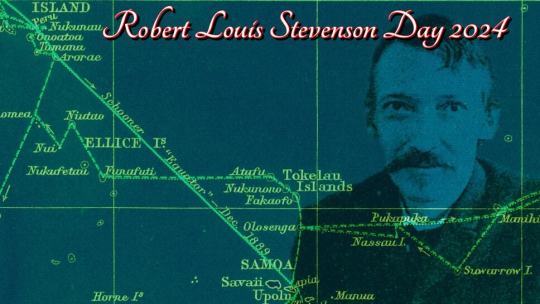
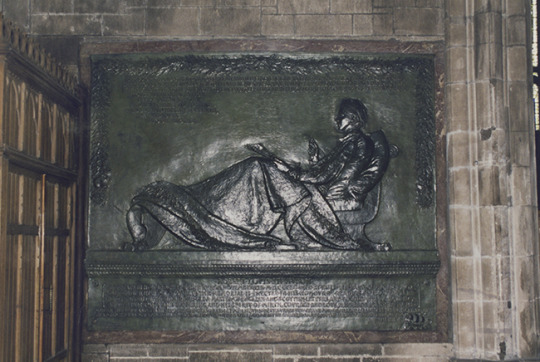
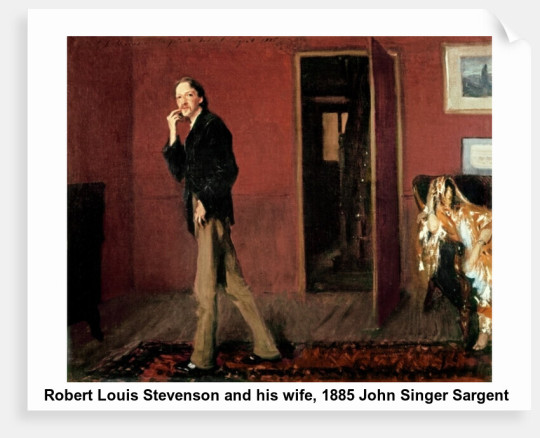
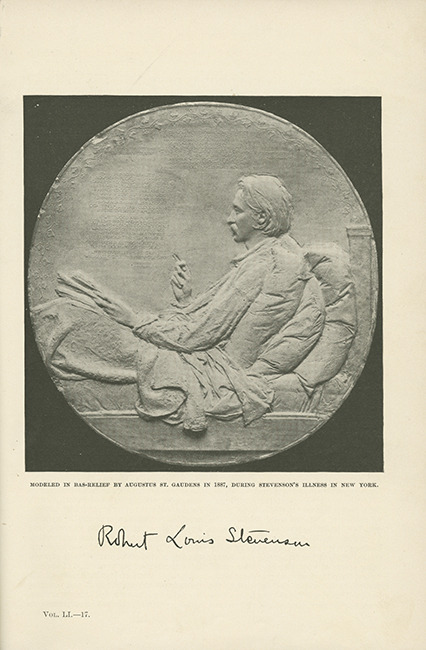
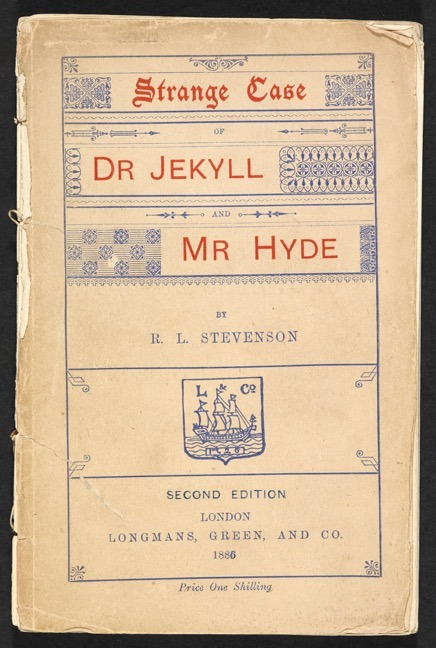
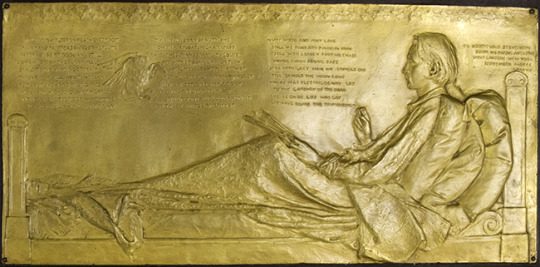
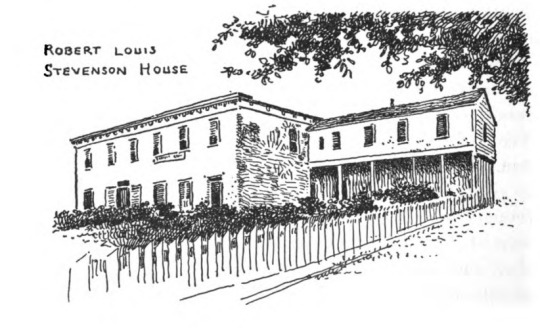
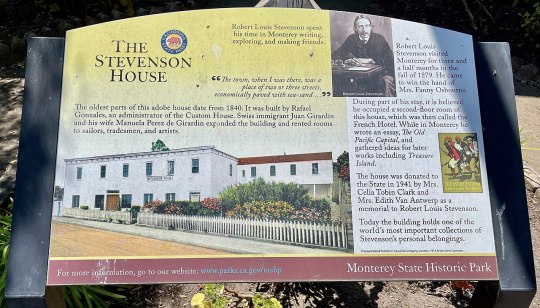
November 13th 1850 saw the birth in Edinburgh of Robert Louis Stevenson, the renowned essayist, poet, and author of fiction and travel books.
Nowadays we remember the man with an anual event, Robert Louis Stevenson Day 2024 includes a number of events for fans to attend. The event which includes readings, screen shows and an unbirthday party. Although most events take place here in Edinburgh on Saturday you can find the unbirthday party in Monterey Public Library, Clifornia. Remarkaqbly this dates back to 1891 when Annie Ide, the 12-year-old daughter of the American Land Commissioner in Samoa, told RLS of her disappointment that there were no special celebrations to mark her birthday on Christmas Day, he came up with an ingenious solution. As a qualified Scottish advocate, he drew up a legal document declaring: ‘I, Robert Louis Stevenson . . . have transferred and do hereby transfer to the said A.H. Ide, all and whole my rights and privileges in the thirteenth day of November, formerly my birthday, now, hereby and henceforth, the birthday of the said A.H. Ide.’ Now each year the Robert Louis Stevenson Club of Monterey holds aan event as such.
Stevenson had a brief sojourn in the Californian town in 1879, he went there to court Fanny Osbourne, a woman he met in France and fallen deeply in love with. Fanny was from Oakland and had returned to attempt a divorce from her husband. She had summoned Stevenson from his family home in Edinburgh and he readily obeyed her request. He wrote a memoir of his journey from New York through the heart of America, to the West coast in The Amateur Emigrant. Although brief, Stevenson’s time in Northern California deeply affected his work, inspiring his classic tales of adventure. RLS boarded at the French Hotel there, it is now known as Stevenson Houseand is a museum and property of the Monterey State Historic Park. t holds a large collection of Stevenson papers and Stevenson memorabilia. It features a bas relief depicting the author writing in bed, as seen in the pics. The second of the photos is Robert Louis Stevenson's Memorial in St Giles, Edinburgh.
8 notes
·
View notes
Text
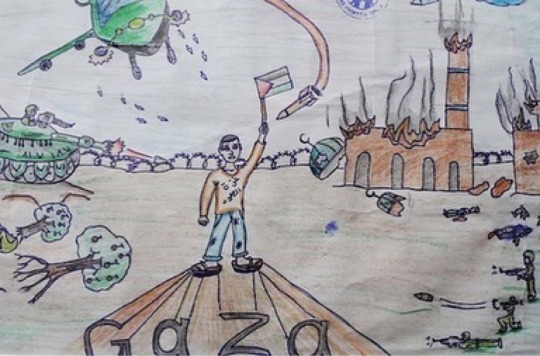


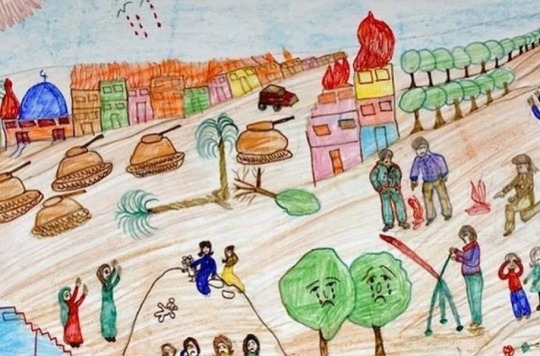
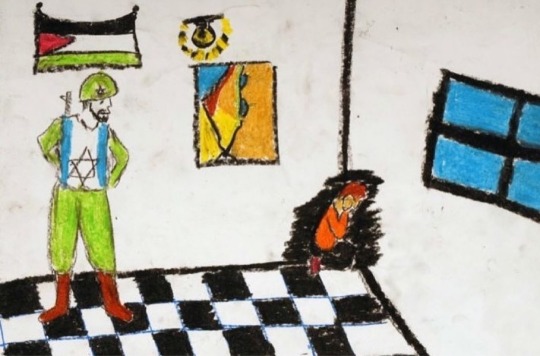
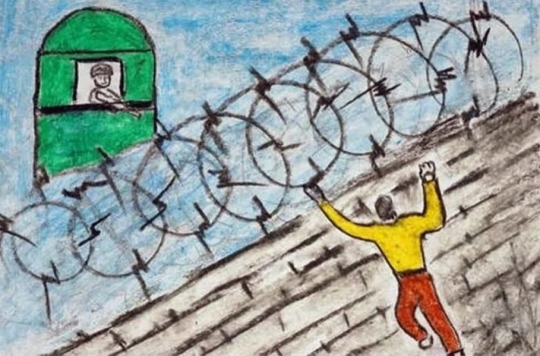

@baladbox "A Child’s View from Gaza" was an art exhibition showcasing drawings created by the children of Gaza (2008-09).
The pictures were drawn as part of an effort to help children deal with the horrors they had experienced. A Bay Area nonprofit, Middle East Children’s Alliance, arranged to display a collection of these pictures at the Museum of Children’s Art in Oakland, California. However, under pressure from the Jewish Federation of the East Bay and other organizations, the museum backed out of the agreement at the last minute.
37 notes
·
View notes